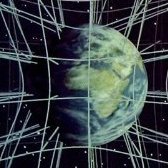Leaderboard
Popular Content
Showing content with the highest reputation on 07/29/18 in all areas
-
If only it was as simplistic as you think it is First of all, quantum physics is both completely deterministic and stochastic. What is deterministic is the evolution of the wave function - given any initial wave function, you can predict with certainty how that wave function will evolve over time (assuming you know the respective boundary conditions etc). However, what is stochastic is the relationship between the wave function, and physical observables - observables are represented by hermitian operators, and which of their eigenvalues you actually measure is - in general - purely probabilistic. For example - you send a stream of photons through a double slit. Given knowledge about the initial conditions (slit separation, photon frequencies, etc) you can predict with certainty what kind of an interference pattern you are going to get on your screen at the end of the experiment. However, you can not predict precisely where each individual photon will hit the screen, that is purely probabilistic. And we’re not even talking about the question which slit each photon goes through. So this is your third possibility - it’s come to be called “determined probabilities”. That’s the first thing. The other thing then is that determinism does not imply an absence of free will, and conversely, indeterminism does not imply that free will is necessarily possible. There are four different philosophical positions that encompass the four possibilities here: hard determinism, compatibilism, hard incompatibilism, and libertarianism. You can look these up yourself. The main point here is that this an ongoing debate, and there is no consensus about which is the correct one. And just to top things off - the human brain is a macroscopic system, and as such classical. So one would expect it to be deterministic. In reality however, in spite of its classicality, it is an example of a complex non-isolated, non-linear, chaotic system. So even if it were completely classical (which actually it isn’t anyway, since it’s fundamental building blocks are quantum mechanical), you still couldn’t predict its precise state very far into the future, because it is extremely sensitive to initial and boundary conditions, never even mind way too complex to mathematically model with currently available technology. It’s also an open feedback system, since it continuously receives external inputs, and generates responses that can modify those very inputs. So is the brain deterministic? You decide yourself, based on the above. Whatever your conclusion, what does that imply for free will? Again, you decide yourself, based on the philosophical positions on this subject matter. I think it is safe to say that there are no straightforward answers either way here.4 points
-
Human activities including hunting and hiking are driving mammals around the world to be more active at night, when they’re less likely to run into people, according to a new study. The consequences of this shift are still unclear, but scientists suspect it could threaten the survival of several animal populations. Coyotes are among the more than 60 mammal species that have shifted to a more nocturnal schedule when living around people. http://www.nature.com/articles/d41586-018-05430-41 point
-
This discussion is about veganism, which is an extremist dietary position... vegetarians do not qualify.1 point
-
No plant plant-based foods provide vitamin B12. Supplementary tablets are produced only by a specific bacterial process. We need this vitamin to avoid anaemia, amongst other important things. What this tells me is that we are evolved to eat and need animal products. Veganism is not natural behaviour... it's an arbitrary indulgence for the middle and chattering classes that have too much time on their hands.1 point
-
1 point
-
The point is neither side is entirely correct, some areas/cultures favour one over the other for good reason, for instance, reign deer are cultivated in areas where almost nothing but lichen grows, try a vegan diet in Siberia and see how it goes...1 point
-
Probably more like a heap of nonsense. At least that is my scientific prediction based on the evidence presented by your posting history. I was prepared to give you another chance, but you raced downhill faster than I expected.1 point
-
I am suggesting that the agent possessing the free will cannot be part of the system itself. But no, not like souls. Like someone standing at an ice cream van. The van is the system, the someone is the agent with free will that can be applied to the system. I am sorry my dislexic typing interfered with the next bit which should read " So although we want and try to exercise our choice, perhaps we might be struck by lightning or just distracted by another event, just as we place our order. " The first possibility would be the action of an external agent (the lightning) that does not possess free will. The second might be another van offering a better price. Either way we never buy anything from that van.1 point
-
My point is if everything is indeterministic, or deterministic, there is 0 chance for free will. There would have to be a third option. So i ask again is there any another view that macrosocopis level, or quantum particles are indeterministic, or deterministic.1 point
-
I'd hate to think how mortifying it would be to get an award from the same people who thought Mother Teresa deserved one...1 point
-
In India 51.4% of women in reproductive age between 15 to 49 years are anaemic. https://www.indiafoodbanking.org/hunger1 point
-
Why don't you write properly? It's like looking at a poo-splattered wall.1 point
-
In a meat-free world with no animal husbandry there would be more malnutrition than there is now. Being a vegan with a complete diet is an exercise that requires significant effort and the ingredients need to be continuously available and pretty local in terms of gaining advantage in carbon footprint.1 point
-
No offense taken. Physicists have been known to use math in a way that drives mathematicians crazier than they already are.1 point
-
The problem is that in your original post you said "clock". Which can be taken to mean any general time keeping device and not one based on an y particular mechanism. In fact, in such discussions, the term "clock" is assumed to mean an "ideal clock" (one that does not lose or gain time due to local conditions.) It isn't until much later that you mention a light clock. And even then you restrict yourself to just a single type of light clock. So lets take your latest example. You have two light (or sound) clocks, one is moving, and one is at "rest" : The red numbers keep track of the ticks for each clock. The white dots are the light/sound pulses and the expanding circles show how the light travels at a set speed relative to our chosen frame. In this example, it does appear that Relativity and Newtonian physics will give the same answer as to how fast the moving clock ticks with respect to the stationary clock. However, what if we add another set of mirrors/sound reflectors, laid out left to right? Then if we use sound or a Newtonian fixed speed for light we get this: With the stationary clock, the two pulses keep time with each other. But with the moving clock, the up and down pulse makes one complete round trip before the left-right pulse has even made one leg of the round trip. In Relativity there is length contraction so you get this: The distance between the left and right mirrors is length contracted as measured from our rest frame, and this causes the two pulses to stay in sync in terms of round trip time. So right here we have a fundamental difference between Newtonian and Relativistic predictions. Or let's go further. Let's enclose the sound clock so that it carries it air with it, and design or light clock to use fiber optic cables to carry the pulses rather than free space. In both these cases, Newtonian physics says that the speed of sound for the sound clock or the speed of light in the light clock is a constant relative to the medium it is traveling through and is completely independent of any motion these clocks may have. So two self-enclosed sound clocks would measure no difference in tick rate between each other no matter which one was moving relative to the outside air, and two light fiber clocks would tick at the same rate regardless of their relative motion. This gets back to what strange was saying with your sound clock example. Someone riding along with the moving sound clock would agree with the stationary observer that his sound clock was ticking slow. Which is in contrast to what Relativity says about moving clocks, in that each will say that it is the other clock ticking slow and their clock is ticking at normal rate. You took one particular set up, measured by one particular frame, and when you got an answer you liked, you stopped and didn't think it all the way through. You failed to consider whether or not the relationship held for more general cases or not. This also means that with the sound clock example the person riding along with the moving light clock would measure a stationary light clock as ticking at the "normal" rate, and the only difference he would visually perceive in its tick rate would be due to Doppler shift. Basically what this mean is that in Newtonian physics, the Doppler shift measured between two receding sources will be different when measured by the Moving source and when measured by the stationary source, While in Relativity all that matter is the relative velocity and they both measure the same Doppler shift. This has practical consequences. when we send space probes to other planets, their velocity has to be planned out very carefully, if they are moving too fast or too slow by just a small amount, not only will they arrive at the target planet's orbit too soon or too late, their actual trajectory will be changed so that they will arrive at the wrong point of the orbit. In other words, it wouldn't take much to make the probe miss the target planet by a wide margin. Once the craft is in space, the only real way NASA has to measure its speed is by Doppler shift. They know the base frequency of the craft and they can check for a Doppler shift to get the relative speed with respect to the Earth. If you use a Newtonian Doppler shift model, both the Earth and Probe are moving objects (the whole solar system for that matter, unless you are proposing a heliocentric universe) And thus all these various motions would have an effect on the Doppler shift measured from the probe, even what time of the year the measurement was made would make a difference. with the Relativistic model, all that counts is the relative velocity between probe and Earth. The two models would lead to different conclusions as to the probes velocity with respect to the Sun when measuring the same Doppler shift. Thus If NASA used the relativistic model to work out what the craft's velocity was, and the Newtonian model was what the universe worked by, then NASA could measure the Doppler shift, conclude that the craft had the right velocity, and have it go on to miss the target planet. ( or conversely, they would conclude that the craft somehow missed its target velocity and that they had screwed up somewhere, only to have it make a perfect meet-up)1 point
-
Yes! beat me to it! Much of our meat is grown in areas where farming vegetables is either impractical or the land is unsuitable for anything but raising meat animals. Humans cannot eat grass, brush, or trees. Growing plants in areas like deserts or areas with a growing season that is too short precludes growing crops but meat animals do well in these places. This is not a right/wrong issue and eating vegan in a healthy way is expensive eve now. Bring up the number of people looking to eat vegan the prices go up faster than production of suitable veggies. Are you going to suggest we raise our children vegan next? Children do not do well on vegan diets, their caloric needs are higher, babies and toddlers have died when raised on a strict vegan regime. Humans are not vegetarians, veganism is an option that has only been possible in the last few thousand years, before that we ate meat, lots of it. Humans are healthier eating some meat at least. We evolved to eat meat, we exchanged a digestive system that could effectively digest plants for a more meat based diet so we could support larger brains. Even our closest relatives, chimps, eat meat... unless you are going to say insects don't count and they do hunt, kill, and eat small animals including other primates. http://theconversation.com/is-a-vegetarian-diet-really-more-environmentally-friendly-than-eating-meat-71596 https://www.independent.co.uk/life-style/food-and-drink/veganism-environment-veganuary-friendly-food-diet-damage-hodmedods-protein-crops-jack-monroe-a8177541.html https://www.cnn.com/2017/02/06/health/vegetarian-diet-conversation/index.html https://qz.com/749443/being-vegan-isnt-as-environmentally-friendly-as-you-think/0 points
-
"Veganism, no" are the first 2 words I posted in this thread. I am not arguing that everyone should turn to veganism. Rather I am pointing out that humans currently eat far too much meat and it is not sustainable indefinitely or the best use of our resources. Our diets need to change in my opinion. This is inaccurate. I could link you examples of people using hydroponics to cheaply go large amounts of food by you don't read links. So feel free to google it yourself. Is there nothing between "fluff piece" and "word of god"?-1 points
-
Gravitational time dilation between two levels of different gravitation, is a phenomenon resulting from classical physics (Newtonian physics) and is always equal to the delay that would have a light clock, moving at the speed that the clock would gain during a free fall from a level with lower gravitation to level with greater gravitation. This is clearly presented in the previously given VETER program available on the link: https://www.dropbox.com/s/9ljwu5wwsi0v9up/VerificationTheoryRelativity.xlsx?dl=0 This program is available on the internet for several years and has many users. Currently, there is version 2.0+++.-2 points
-
If …. "Most of it is well known" …… then please cite url references/Titles to the topics/discussions published hereon these Science Forums. And its quite childish to accuse one's commentary as being "a dash of nonsense" simply because you are incapable of comprehending said ……. or it is/was directly contrary to what you were nurtured to believe was factual science. Consensus science and PC science …….. is junk science. And ps, …. what I posted above was just the “preface” of my “titled” commentary, thus there is an additional 6+- pages of said commentary which I am reasonably sure that you would also characterize as being "a dash of nonsense" because of this Forum's NIH problem. Cheers-3 points










